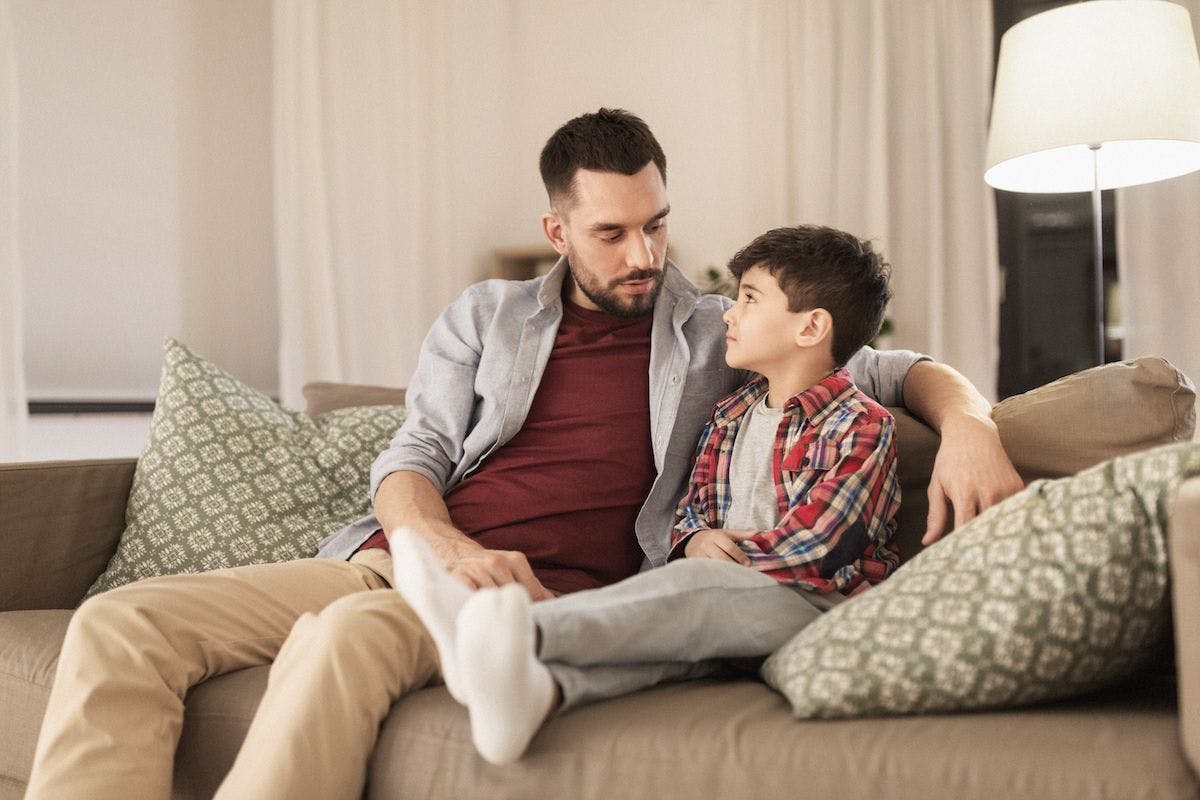
When a couple part ways, it’s never an easy decision, and one made all the more complicated when children are involved. Here, our expert columnist, Kieran Townsend, shares advice on how to approach and navigate breaking the news to kids
The end of a relationship can be a difficult and emotionally distressing time for a couple, with added complications when children are involved.
Research into this issue has highlighted the impact separation can have on children, with the University College London’s Institute of Education finding that children whose parents separate while they’re aged between seven and 14 are 16% more likely to experience behavioural issues and emotional problems, such as anxiety and depression. In particular, boys tended to display an increase in ‘bad’ behaviour and disobedience, but overall behaviour changes in kids could include bed wetting, a loss of appetite, sleep issues, and a loss of interest in doing things they usually enjoy.
It is therefore vital that you try to navigate the situation effectively. While this is always going to be a difficult conversation to have, there are some things that you can do to help it go as smoothly as possible, convey key information, and reassure your children about the transition ahead.
Plan what you will say and when you will say it
Ideally, if possible, try to create a plan together of when, how, and what you will tell your kids. While this will be a difficult conversation, having a plan in place will help to reduce some emotion, and ensure you can get the key information across to them.
Trying to create a safe space to have this conversation is important to provide safety and privacy, so where you have the chat can play an important role. Also consider the timing of the conversation, allowing for some space for them to process what’s been discussed, such as over a weekend. You may want to avoid having these conversations on a holiday or other special day, or just before school or bedtime, where possible. Otherwise, this could lead your kids to think about this every time this occasion or holiday comes around.
Avoid assigning blame
While this is an emotional time, try to avoid assigning blame and saying who’s at fault for the separation, as this could potentially lead to children feeling stuck in the middle. Ideally, talk to them with both of you present, to let your kids know that you’re committed to working together as their parents, which will help to reassure them.
An added way to emphasise this is through your language. You can do this by using the word ‘we’ to help demonstrate this partnership. By using this approach, you are focusing on your responsibility as a parent, and not whose fault it is. This is a more productive and proactive frame of reference to move forward.
Be honest
Being as open as you can in this conversation is critical! Kids can be intuitive, and so may have an idea that something isn’t quite right, or hasn’t been for a while. However, this isn’t always the case, and while this would likely have been in the minds of the parents for some time, it may come as a shock for the kids (particularly if they are younger).
Normalising separation and divorce can be useful, explaining that this does happen, and parents can fall out of love, but that this doesn’t change their love for their children.
Moreover, if they have questions, do your best to answer honestly. If you don’t know an answer yet, tell them that, but reassure them that you will answer when you can. Don’t make promises which you are not able to deliver on, or are unsure about currently. You can focus on what will stay the same though, which we will cover more in the next point.
Try to maintain a routine
Routine is crucial for children, especially in difficult times. Before having this conversation, be clear on what will stay the same as a starting point. This reassurance can help to ease some of their initial concerns.
Building from this, start to talk with them about what things will change over the coming days, weeks, and months. This will start to provide some clarity. For example, which parent may be leaving the family home, and when they will be able to see the children.
Be prepared for their response
There is no ‘typical’ or ‘normal’ response to this, as every child will react differently. So, it’s best not to expect a certain reaction, or try to predict how your child(ren) might respond. They may experience a range of emotions, from sadness to anger. Even no reaction in itself is a response. Once you have broken the news to them, step back and allow them some time to process the news, even if this does involve a period of silence.
Once they have had some time, explain that they can process the news in their own way, in their own time, and at their own pace.
Give them time to adjust
Allow time for your kids to process the news in their own way. During this time, monitor how they are behaving in their daily lives. This may involve checking in with their school or after school clubs to get feedback. Having someone neutral, who they can talk to about their thoughts and feelings, can be helpful to help them process their emotions, and build resilience. This might include a life coach or a therapist.
In time, with care and support, kids should be able to adapt to the new normal of their family dynamic. And, hopefully, some of the ideas I’ve shared will help to provide a framework to make a difficult conversation a little easier.

